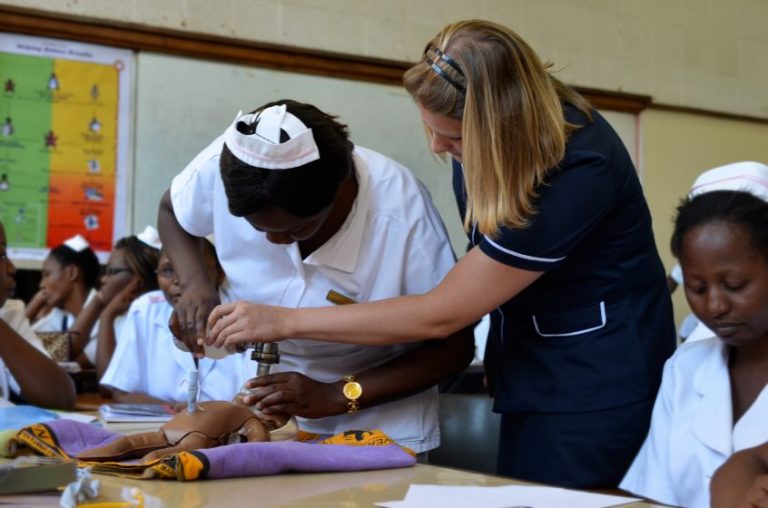Originally posted on Seed Global Health
Helping Babies Breathe (HBB),the resuscitation training program focused on saving babies in the first minutes of life, has drawn attention to newborn survival in resource-limited settings. Midwives, traditional birth attendants, nurses, physicians, and students have all learned how to give newborns their best chance at taking life’s first breath through the HBB curriculum. In pilot studies of HBB, the knowledge health workers gain has dramatically reduced newborn mortality – and since almost a million newborns don’t make it through their first day of life, the impact of these skills cannot be underemphasized.
Yet there are still many providers who have not been trained in the life-saving techniques of HBB, or who do not feel confident putting their knowledge into practice. Education and training are core to our work at Seed Global Health, and the central component of the Global Health Service Partnership (GHSP), a public-private partnership between Seed, the Peace Corps, PEPFAR, and our host-country partner universities in Uganda, Tanzania, Malawi, Liberia, and Swaziland.
GHSP deploys U.S. physician, nurse, and midwife educators for a service period of one year to work in classroom and clinical settings with local students and healthcare providers. Many GHSP volunteers have been requested by their local sites to focus their efforts around newborn resuscitation, and HBB more specifically. But what has been the impact of these GHSP volunteers in advancing neonatal resuscitation? And what’s needed going forward?
We conducted a survey to begin assessing the current assets and needs of our GHSP partner sites with respect to this curriculum, ultimately to help devise a strategy that further strengthens our HBB efforts moving forward. We found that our 25 GHSP partner sites housed 47 master trainers in HBB, and that nine sites (36%) reported hosting HBB training within the last year. Three of these HBB training activities had been directly organized with GHSP volunteers. Since GHSP’s launch in 2013, volunteers helped train approximately 960 individuals in HBB, including medical and nursing students, interns and residents, clinical staff, and faculty. We have also helped supply many sites with manikins, basic resuscitation equipment, and other materials to train in HBB.

Between one-third and one-half of our sites are still in need of more HBB master trainers and equipment. In addition, HBB follow-up studies show that skills and confidence in resuscitation wane in the weeks and months after a training session. We know that training, by itself, is not sufficient to create sustainable change. Regular mentorship in the classroom and at the bedside can help reinforce skills learnt in training and allow trainees to translate skills into positive clinical outcomes.
So what’s next? Given these results, we hope to train all our incoming GHSP volunteers as master HBB trainers, so they can work with students and healthcare workers continually over the course of their service year to help internalize these critical skills. We also are helping specific institutions, at their request, to incorporate resuscitation training into the standard curricula for their nursing and medical students. Lastly, we aim to empower those we have trained to become HBB champions.
The “golden minute” – that first 60 seconds after birth where baby must take its first breath – is a critical moment for newborn survival. By training and inspiring others, we and our GHSP volunteers and alum can and move clinics, communities, and countries toward the ultimate aim of reducing neonatal mortality worldwide.
Every newborn deserves the chance to survive and thrive – and Helping Babies Breathe gives health workers the skills to help babies get that important first breath of life.
Blog by Dr. Kiran Mitha, Seed Global Health.
